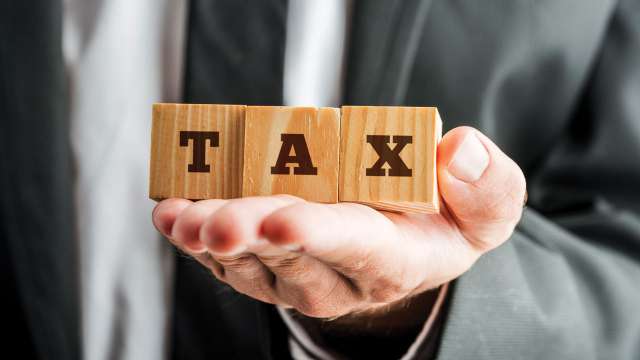Personal
How self-employed can avoid penalty under presumptive taxation

Unorganised sector constitutes approximately 92% of the employed people and around half of India’s GDP.
It mainly comprises household manufacturing activity and small scale and tiny sectors of the industry. Such businesses cannot afford a well set financial and accounting system.
Taxing of unorganised sector under direct tax
Reluctance of maintaining regular books of account was proving to be a big hindrance in inducing people to file tax returns. Hence, the government took an important step of a simple presumptive tax regime for the unorganised sector. Under this, eligible taxpayers opting for such scheme can calculate the profit based on certain percentage of their turnover, rather than maintenance of complete set of books of accounts.
A taxpayer having turnover in business up to Rs 2 crore can compute his profit at the rate of 8% of cash turnover. In order to encourage digital economy, for receipt through banking channel, this percentage is reduced even further to 6% of the turnover. A taxpayer having professional receipts up to Rs 50 lakh can compute his profit at the rate of 50% of gross receipts.
For a person carrying business of plying/hiring/leasing of goods carriage and owning not more than 10 trucks, an option is given to compute business profit at the rate of Rs 1,000 per tonne per truck for every month in case of heavy goods vehicle and Rs 7,500 per truck per month for other goods vehicle.
The above presumptive taxation gives a lot of relief such as saving time in maintenance of books of accounts, accountant cost, compliance cost, etc.
Further, persons opting presumptive schemes can file a concise three to four pager ITR form with minimal but a few mandatory fields (that is, amount of debtors, creditors, cash/bank balance and stock as on last day) as compared to a 30+ pager ITR in other cases.
Though taxpayers are not required to maintain regular books of accounts under presumptive taxation, they are expected to keep following conditions in mind to avoid penal consequences:
Not to accept or repay any loan or deposit in excess of Rs 20,000 in cash: If a person accepts or repays a loan in cash in excess of Rs 20,000, penalty equal to the amount of loan received or repaid can be levied.
Not to receive cash of Rs 2 lakh or more: Receipt of Rs 2 lakh or more in cash from a person in a day or for a single transaction or single event may result into a penalty equal to the amount received.
Recent increase in tax rebate has made taxpayers earning taxable income up to Rs 5 lakh pay nil tax. Taking presumptive tax rates into account, it can be seen that individual/HUF (Hindu Undivided Family) taxpayer having business turnover of Rs 62.50 lakh in cash or Rs 83 lakh through banking channel will not have to pay any tax.
Similarly, individual having professional receipts up to Rs 10 lakh will not have to pay any tax. It should be noted that if presumptive income is above Rs 2.5 lakh, then tax payer is required to file return though no tax is payable.
GST provisions for unorganised sector
Registration: Threshold limit prescribed for registration under the Goods and Services Tax (GST) is Rs 20 lakh and for north-eastern states, it is Rs 10 lakh. This limit is proposed to be increased to Rs 40 lakh for goods.
Composition scheme: Manufacturers, small traders and restaurants having turnover up to Rs 1 crore are entitled to opt for composition scheme. Tax rates are 2% for manufacturers, 1% for small traders and 5% for restaurants. However, they are not entitled to any credit of input tax. Composition dealers cannot charge GST to their customers. Composition scheme is not available for dealers engaged in inter-state trade and commerce.
Return filing: Small taxpayers with annual aggregate turnover up to Rs 1.5 crore are permitted to file GSTR 1 on quarterly basis whereas others have to file this return monthly. In addition, all taxpayers have to file annual return.
Thus, it can be seen that the government has relaxed provisions under both income tax and GST. Compliance burden has been substantially reduced. This should go a long way in encouraging small tax payers to comply.





























